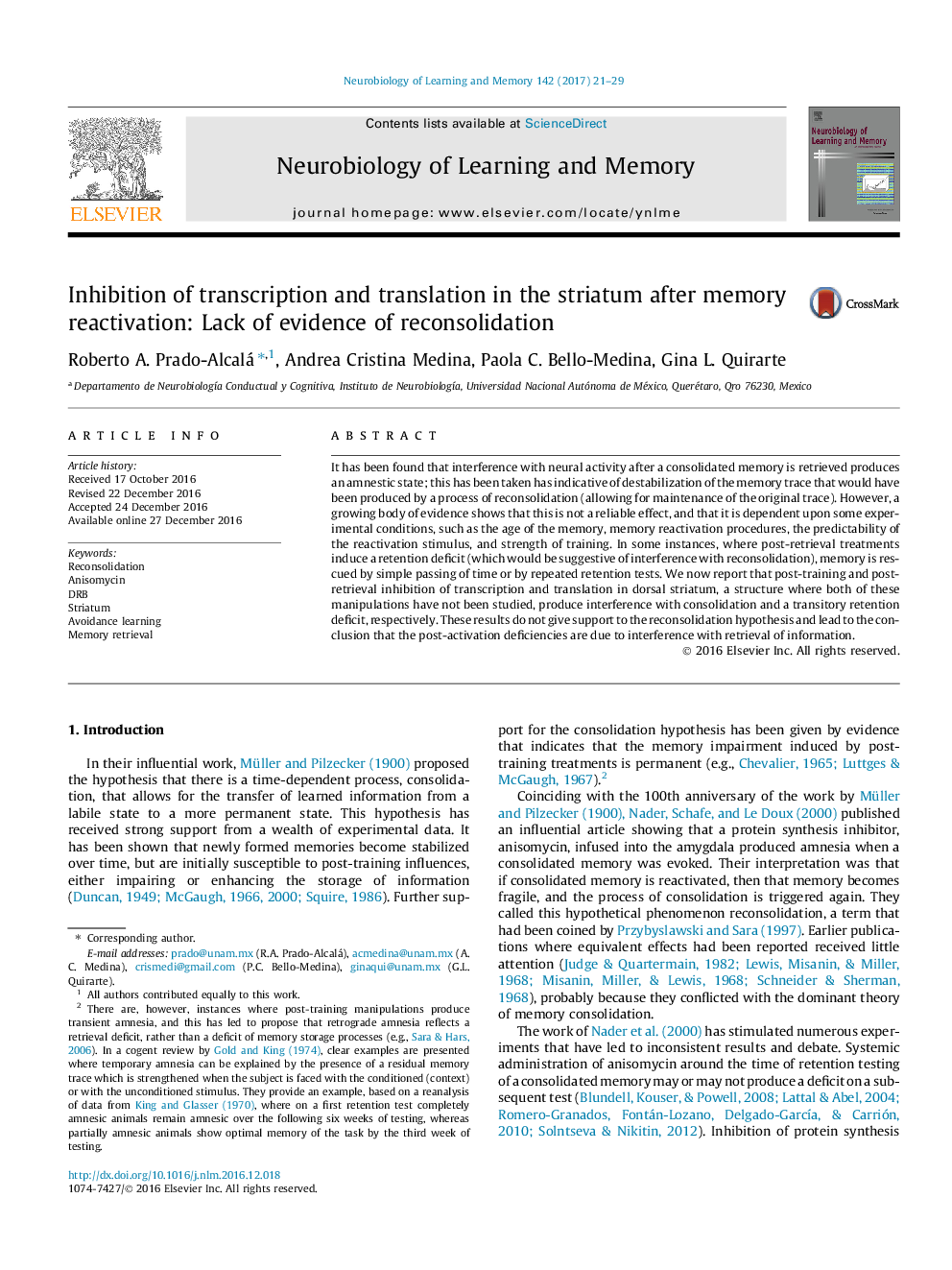| Article ID | Journal | Published Year | Pages | File Type |
|---|---|---|---|---|
| 5043214 | Neurobiology of Learning and Memory | 2017 | 9 Pages |
â¢Post-training inhibition of transcription in striatum produced lasting amnesia.â¢Post-retrieval inhibition of transcription in striatum only produced temporary amnesia.â¢Post-training inhibition of translation in striatum produced lasting amnesia.â¢Post-retrieval inhibition of translation in striatum only produced temporary amnesia.
It has been found that interference with neural activity after a consolidated memory is retrieved produces an amnestic state; this has been taken has indicative of destabilization of the memory trace that would have been produced by a process of reconsolidation (allowing for maintenance of the original trace). However, a growing body of evidence shows that this is not a reliable effect, and that it is dependent upon some experimental conditions, such as the age of the memory, memory reactivation procedures, the predictability of the reactivation stimulus, and strength of training. In some instances, where post-retrieval treatments induce a retention deficit (which would be suggestive of interference with reconsolidation), memory is rescued by simple passing of time or by repeated retention tests. We now report that post-training and post-retrieval inhibition of transcription and translation in dorsal striatum, a structure where both of these manipulations have not been studied, produce interference with consolidation and a transitory retention deficit, respectively. These results do not give support to the reconsolidation hypothesis and lead to the conclusion that the post-activation deficiencies are due to interference with retrieval of information.
